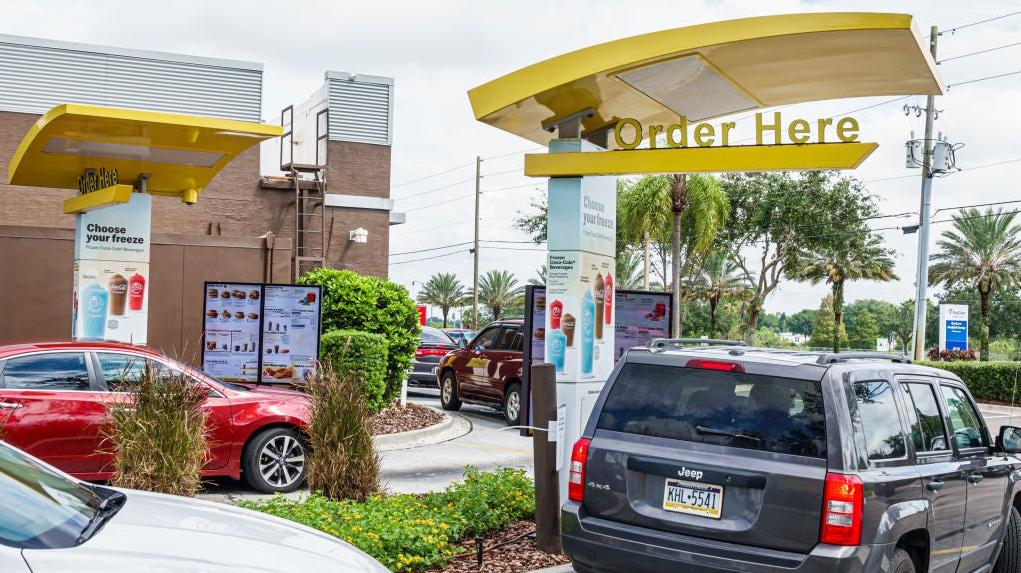McDonald's New AI Voice Recognition Drive-Thru May Be Illegal (Updated)
A lawsuit has been filed in Illinois claiming the new system violates state law
Update, June 10: The future of drive-thru may not be arriving as quickly as McDonald's wants, and not just because giving your order to a robot is a more clunky process than talking to a human, or because it may eliminate human jobs. It may also be illegal.
An Illinois man has filed a lawsuit against the fast-food chain, claiming that by using voice-recognition software to take his order, McDonald's has violated the state's Biometric Information Privacy Act (BIPA), which, as Restaurant Business explains, "requires companies to inform customers that they are collecting their biometric information, which can include voiceprints, fingerprints, facial scans, handprints and palm scans."
The day in 2019 when Shannon Carpenter rolled into a McDonald's drive-thru in the Chicago suburb of Lombard (one of ten test sites for the new AI drive-thru technology) and gave his order to a robot, the voice-recognition software took a "voiceprint" to keep on file so it would recognize Carpenter's voice and process his order more quickly next time—a "more tailored experience," in corporate language. But it didn't ask Carpenter's permission, which, according to BIPA, it should have. According to the lawsuit, BIPA requirements "are straightforward and easily satisfied, often requiring little more than acquiring a written record of consent."
The lawsuit was moved to a federal court last week. Carpenter is seeking class status, meaning that if McDonald's is found to have violated BIPA, it will have to pay out to everyone who used the AI drive-thrus.
Original post, June 3: Our robot overlords keep creeping up on us, ready to take over every single aspect of our lives. Soon, the world of The Matrix will be reality, but until then, we can place our fast food orders through an AI-powered system. 10 McDonald's locations around Chicago are reportedly testing this new ordering system, and while I have my slight doubts, CNBC explains that the switch may become permanent within the next two years.
McDonald's CEO Chris Kempczinski recently spoke about the new system at Alliance Bernstein's Strategic Decisions Conference, explaining that the voice-ordering technology is yielding about 85% accuracy right now. That means that an imperfect fifth of the orders will require contact with an actual human being. To me, a "strategic decisions conference" sounds suspiciously like a fictional event, signaling the beginning of social dystopia, but that's beside the point.
Since large corporations clearly want to eliminate as many human jobs as possible due to labor costs, we can presume that AI systems are looking more and more appealing. Former McDonald's CEO Steve Easterbrook, ousted for inappropriate behavior, had reportedly gone on a buying frenzy in 2019, getting ahold of similar restaurant technology. Kempczinski says the technology isn't quite there yet and will probably take one or two years to implement fully. "Now there's a big leap from going to 10 restaurants in Chicago to 14,000 restaurants across the U.S., with an infinite number of promo permutations, menu permutations, dialect permutations, weather—and on and on and on," Kempczinski said at the conference.
CNBC reports a few other problems with the technology. First, restaurant employees are struggling to resist the urge to jump in and assist customers during the ordering process. Second, technology that would eliminate more jobs for grill and fry stations is being considered as well. Fortunately, that probably won't be used within the next five years, despite the fact that it's available right now. It's because the tech is moving so quickly and keeping up by itself would be a pretty monumental task.
If any of you have seen the AI system in the wild, let us know how your experience was. This might be the early dawn of a weird future that nobody actually wanted.
